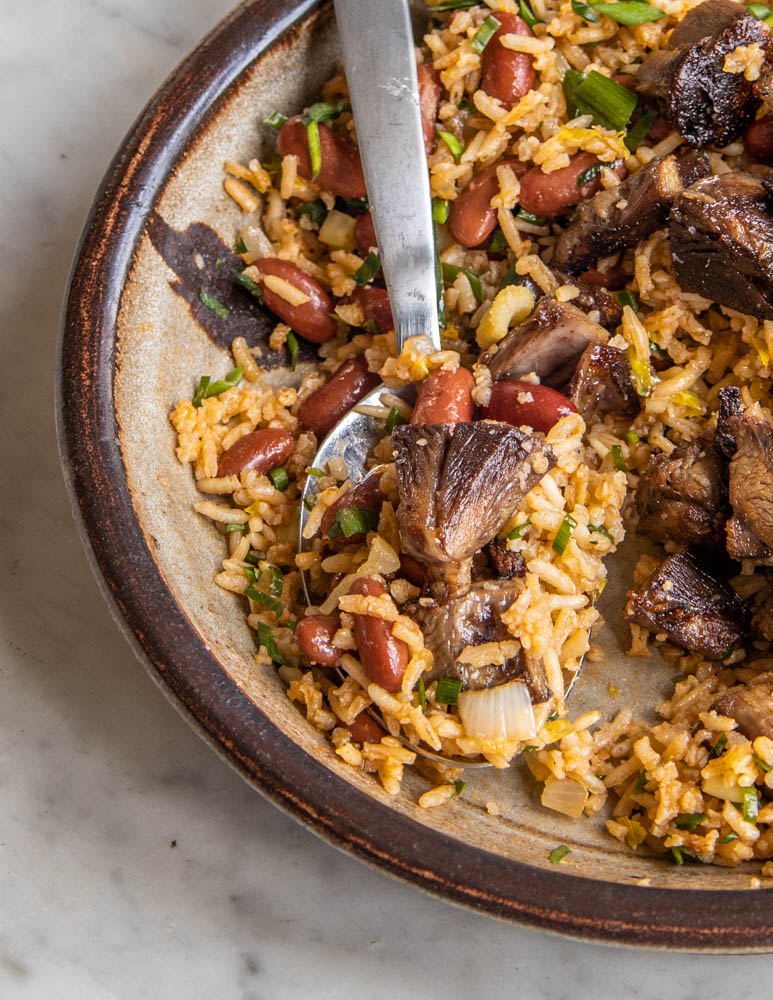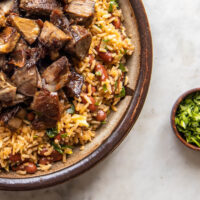Braised Goat Shank Rice and Beans
Braised goat shank rice and beans is a delicious one pot meal a customer was nice enough to send in to us. It’s the perfect way to stretch a shank or two to feed multiple people. Read on and I’ll explain how to make it.
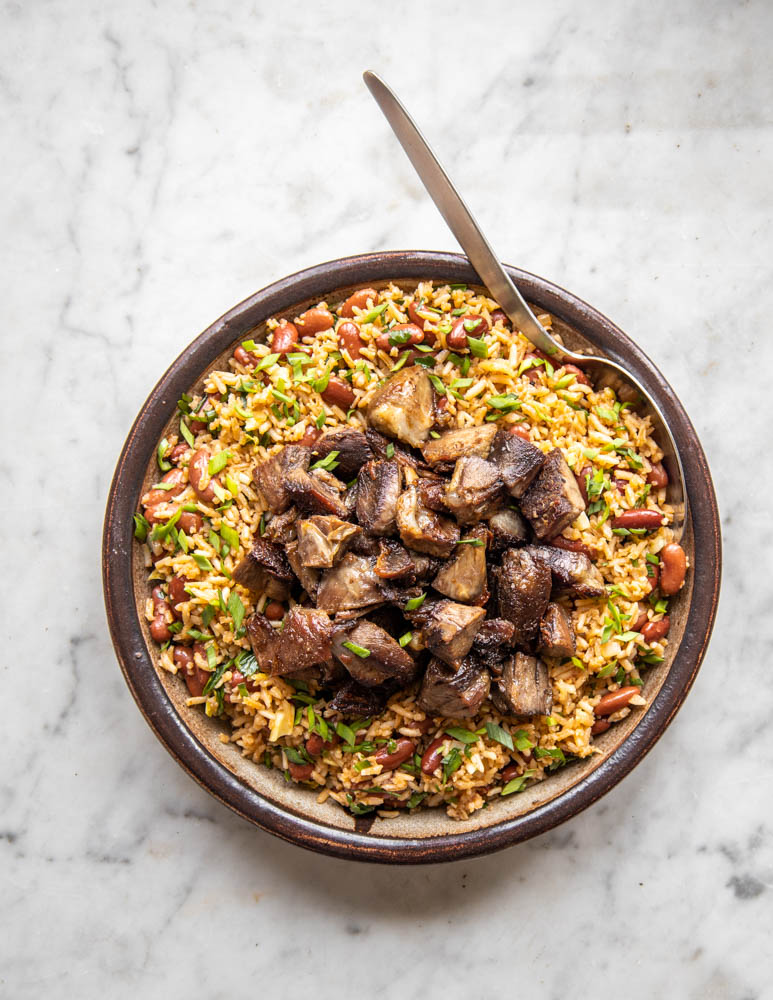
How to make it
To make the dish, you brown a goat shank and simmer it in a tomato broth until tender, then cool, remove the meat and cut into bite sized pieces.
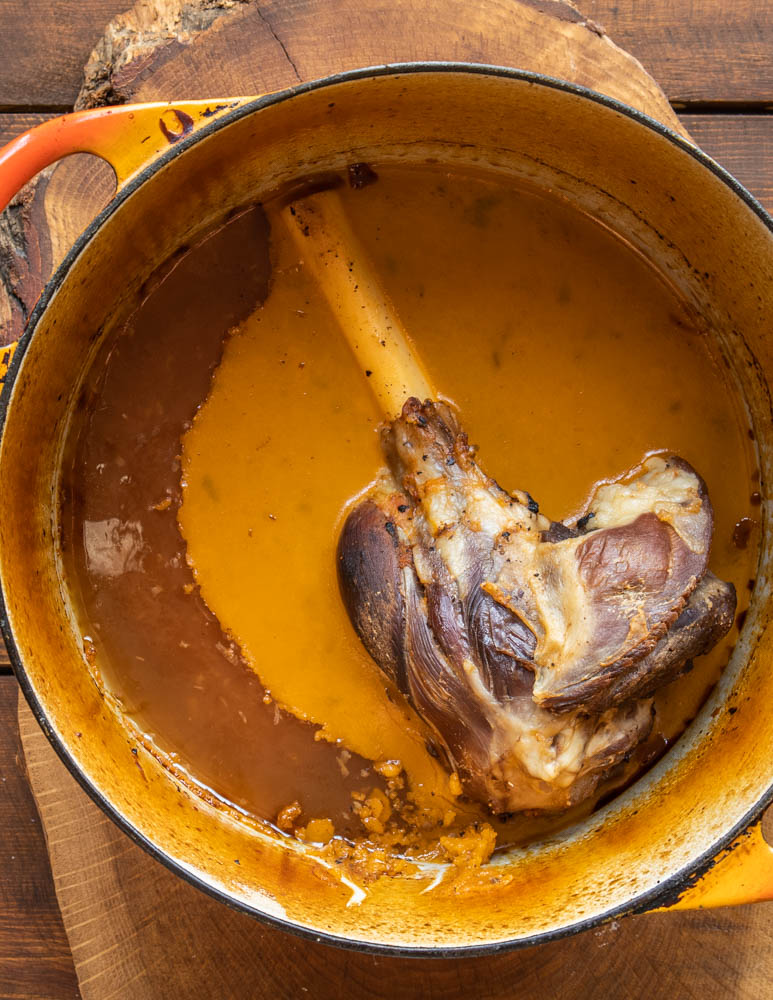
Simmering the rice in the cooking liquid adds a great flavor. Adding beans and the reserved fat from cooking the shank at the end turns it into a rich, but easy meal anyone can make. After the rice is cooked serving is easy, season the rice and add some scallions or herbs like cilantro, then prepare the meat.
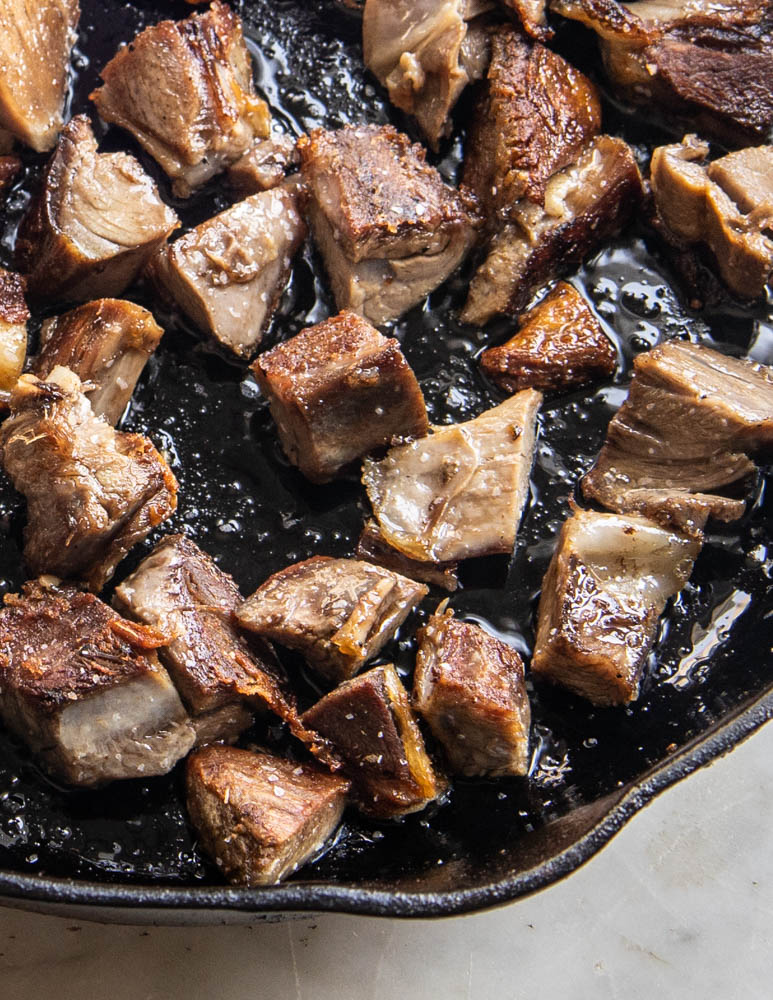
By far the best part of the recipe is sautéing chunks of cooked shank meat until golden brown and piling them on top. After your first bite you might want to keep them all to yourself . You can prepare lamb shoulder, ribs and neck the same way.
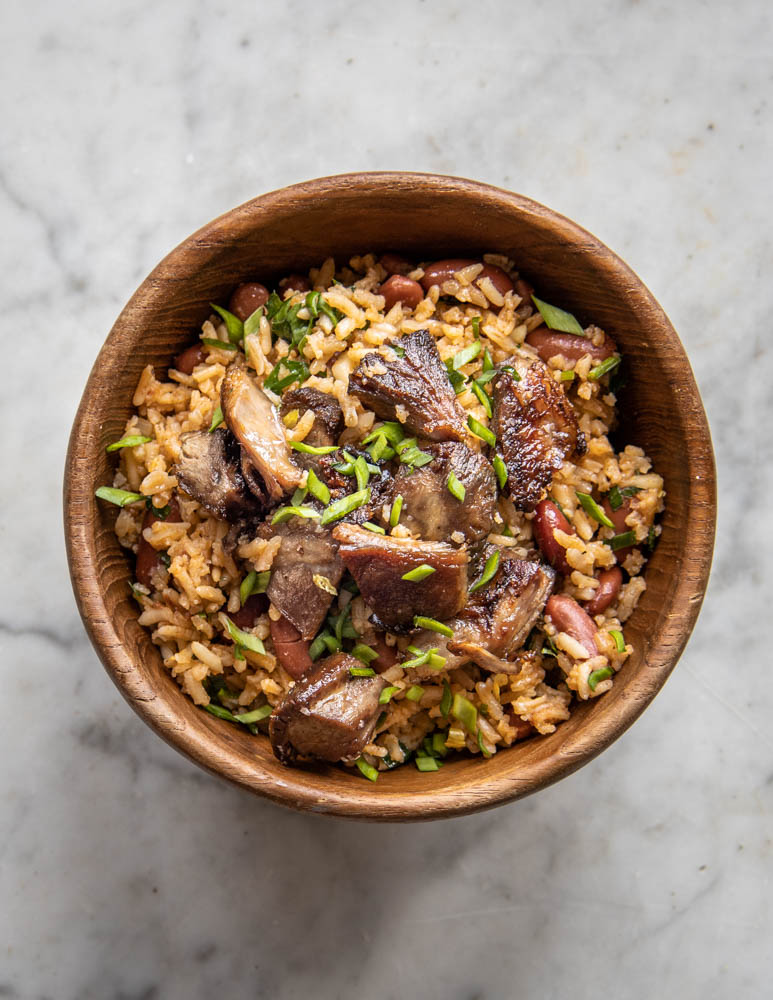
Thanks to John for sending in this delicious, approachable meal!

This recipe is by James Beard Award-winning Chef Alan Bergo. He’s a chef from Minnesota and author of The Forager Chef’s Book of Flora. Learn more about Chef Alan at foragerchef.com.
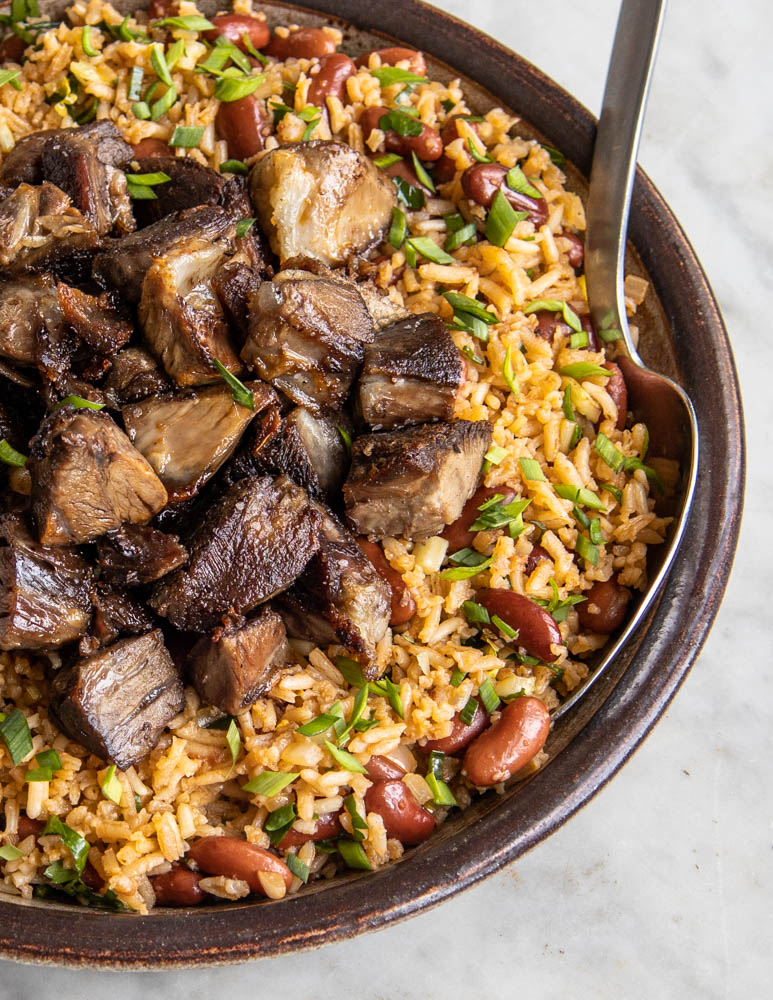
Related Posts
Lamb Shank Osso Bucco with Onions
Braised Goat Shank Rice and Beans
Equipment
- 1 Dutch oven
Ingredients
Shank
- 2 goat shanks (or 1 large lamb shank) about 1.5 lbs
- 1 teaspoon kosher salt plus more to taste
- 3 tablespoons lamb fat separated
- 3 large cloves garlic finely minced or grated
- 2 Tablespoons tomato paste
- 2.75 cups lamb stock
- ¼ cup dry white wine
- ¼ teaspoon dried thyme
- Tiny pinch 1/8 teaspoon cayenne (optional)
Beans and Rice
- 1 dried bay leaf
- ¾ cup long-grain rice
- 1 15 oz can kidney beans rinsed
- Vegetable garnish optional
- ¼ cup finely chopped red bell pepper
- ¼ cup finely chopped yellow onion
- ¼ cup finely chopped celery
Serving
- 1 small handful chopped parsley and/or chives (a garnish, optional)
Instructions
Cook the shanks
- Season the shank with the salt and rest overnight, uncovered in the fridge. The next day, in a dutch oven or pot that can fit the meat, brown the shank in a tablespoon of lamb fat.
- Drain the fat off and discard, then add another tablespoon of lamb fat, along with the garlic, pushing it to one side of the pan, stir, and cook for 30 seconds.
- Add the tomato paste and cook for a minute more, stirring occasionally. Add the wine and deglaze, scraping up the browned bits, then add the stock, thyme and cayenne if using, cover with a sheet of parchment, top with a tight fitting lid, and cook in a preheated 275 F oven for 1.5 hours, or until fork-tender.
Picking the meat
- Allow the shanks to cool in their liquid, then remove, pick the meat off and cut into 1 inch pieces and reserve, discarding the bone. Skim as much of the fat from the top of the cooking liquid as you can and reserve to mix with the rice at the end.
Rice
- Toast the rice in a 350 F oven for 20-25 minutes or until aromatic and lightly browned.
- Pour the shank cooking liquid into a container and measure it-you need 1.5 cups to cook the rice. If you have too much liquid, cook it down, if you have too little, add water or stock to make up the difference. Taste the cooking liquid and adjust the seasoning for salt if needed—it should be well-seasoned.
- Put the liquid and toasted rice in a 1 quart saucepot with a lid, bring to a simmer, turn the heat to as low as possible, cover, and cook for 20 minutes, or until tender.
- Allow the rice to rest for 5-10 minutes.
Rice and beans
- Fluff the rice with a fork and add to a bowl with the beans, along with the reserved fat to taste (melt it to make it easy to pour) along with the parsley and chives if using, mixing gently so as not to break up the rice. Put the meat into a serving dish, cover with foil and keep warm in an oven.
Saute the shank and serve
- Heat a tablespoon of lamb fat in an 10 inch cast iron skillet. Saute and brown the pieces of shank, season with a pinch of salt and arrange in the middle of the rice and beans, garnish with the parsley or chives if using, and serve.
Notes
Nutrition
